Exploring the Future of Education through Neuroscience, EdTech and Literacy

Neuroscience researchers, education technology experts, and literacy experts recently converged at AIM just outside of Philadelphia to discuss the Future of Education at the AIM IGNITE Center Summer Institute.
AIM consists of AIM Academy, a first through 12th grade school for children with language-based learning differences, and the AIM Institute for Learning & Research, an international, multidisciplinary institute forging partnerships with researchers and providing educational training opportunities to parents, teachers, and professionals in the areas of literacy and language-based learning differences.
Participants at this inaugural The IGNITE (Implementing Global Neuroscience in Technology and Education) Center event, which was sponsored in part by an ADVIS – Edward E. Ford Transformative Models for Independent School Sustainability grant, included representatives from a variety of educational learning institutions from several states. In-depth activities featured team problem-solving sessions and hands-on learning with new technologies, including an in-school EEG research lab demonstration, a future-ready student profile human-centered design thinking workshop, virtual-reality, wearable devices, a global portal, and more.
Speakers included: Dr. Kenneth Pugh, Director of Haskins Laboratories, Yale University; Dr. Nicole Landi, Assistant Professor of Psychological Sciences, University of Connecticut, Adjunct Assistant Professor of Psychology, Yale Study Center, Director of EEG Research, Haskins Labs; Dr. Justin Aglio, Director of Academic Achievement & District Innovation, Montour School District (Pittsburgh); Mr. Al Chiaradonna, Vice-President, SEI Investments; Dr. John Sabatini, Principle Research Scientist, Research and Development Division, Global Assessment Center, Educational Testing Service; and Dr. Arno Klein, Director of Innovative Technologies, Child Mind Institute.
“Having such a powerful group of speakers bring together the topics of neuroscience, technology, and literacy was an exceptional opportunity for our attendees as well as for our school,” said AIM Head of School Chris Herman. “The reality is that many schools do not yet recognize the importance of working at the neuro level for all students nor do they see how possible it all is. The event gave us the chance to make the case for research-informed teaching and for a future focused mindset in schools. It was very exciting to be a part of it all.”

Research to Practice
Pugh and Landi of Haskins Laboratories outlined their new collaboration with AIM to improve language and literacy outcomes for children at risk for reading difficulties worldwide through its partnership called the Haskins Global L2 (Language & Literacy) Innovation Hub. An international and interdisciplinary initiative, the hub brings together researchers, practitioners, educators, and education technology specialists to:
- improve the sensitivity of early language assessment and intervention;
- deliver on the promise of neuroscience-guided reading instruction and remediation;
- scale the solutions to global challenges using education technology; and
- train a new generation of educators and clinicians.
Future of Learning
Klein of the Child Mind Institute engaged participants with real-world technologies for diagnosing and assessing mental health, including wearable devices, phone apps, and voice analysis and informatics tools. Klein modeled an example of a wrist-worn wearable device called the “Tingle” that records and remotely monitors compulsive behaviors (such as trichotillomania, excoriation, and nail biting) and can provide an alert when engaging in such behaviors (by haptic feedback on the wrist). He and his team have created apps to remotely administer therapies for children with anxiety disorders, as well as MindLogger, a general-purpose data collection platform where people can design and administer a wide range of assessments, including surveys, drawing and tapping tasks, and audio recordings.
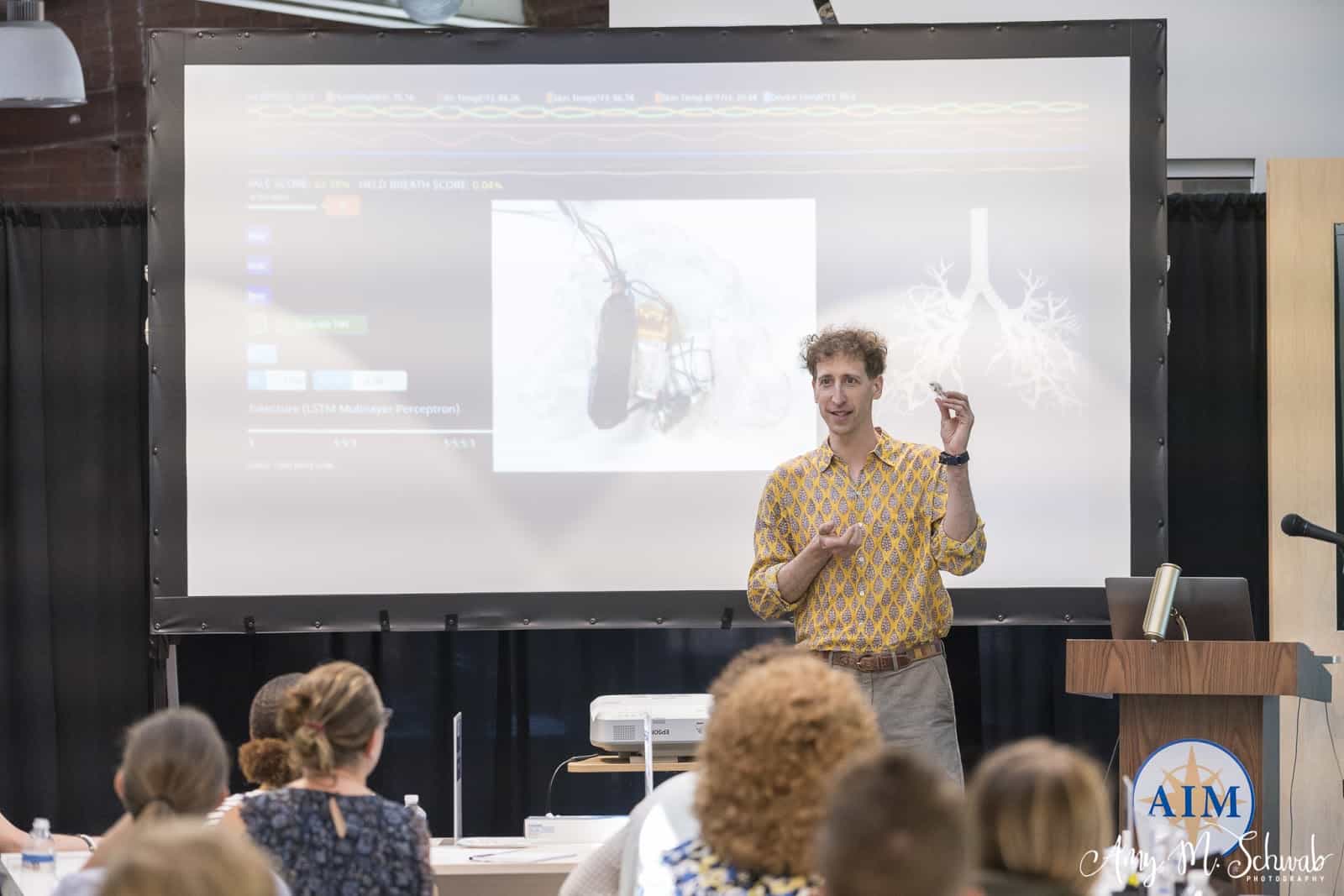
Additional workshops included building background knowledge through immersive and experiential learning in and out of the classroom with Evan Jackson and Chris Herman, a simulation of a Shared Studios portal, a small inflatable space with a large video screen designed to foster vivid person-to-person communication a world away, and an opportunity for small groups to present plans for research to solve a problem students face in their own institutions and receive funding for the project.
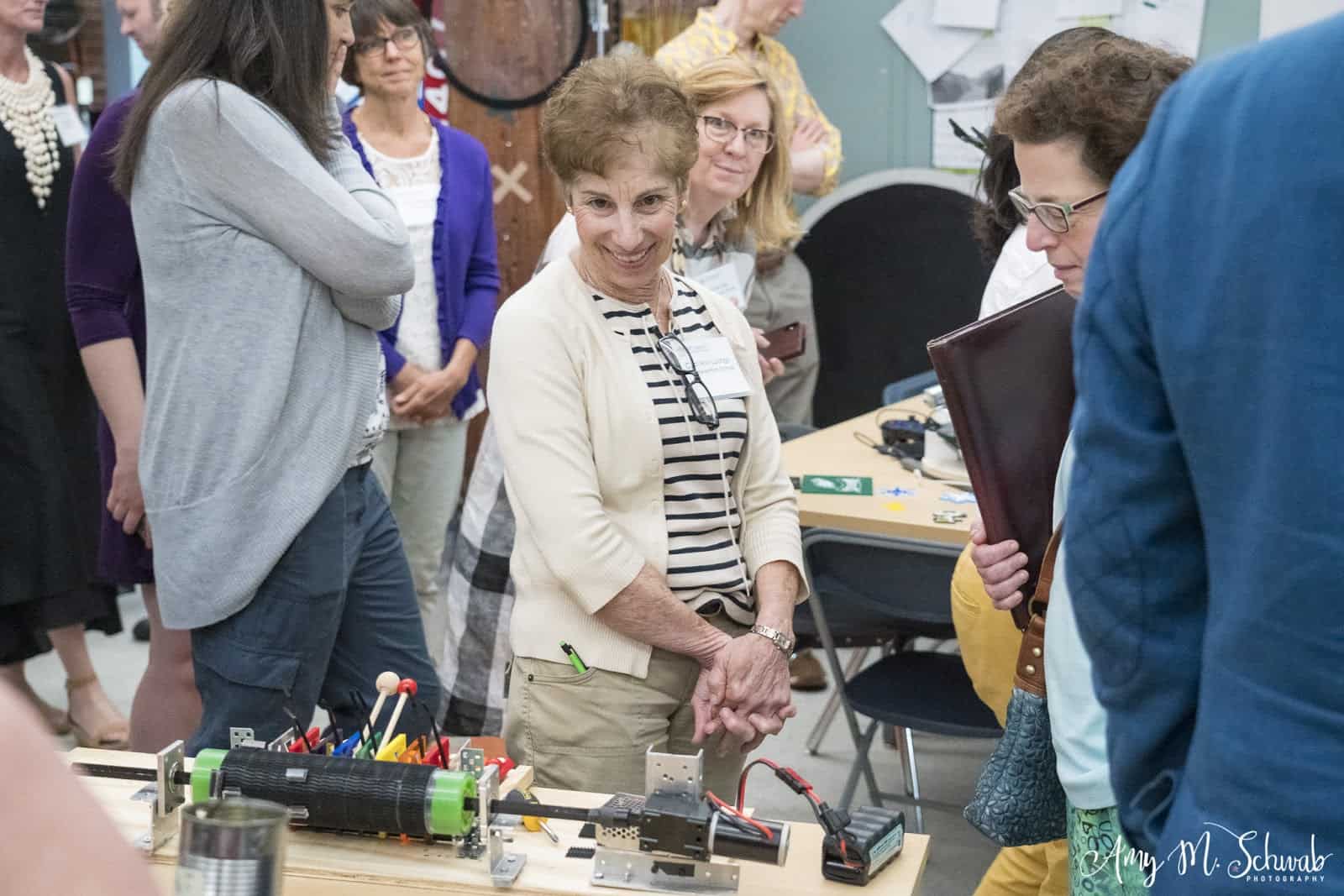
What’s Next
AIM Institute recently launched a new way for educators to learn and grow together with the introduction of AIM Pathways, an interactive digital platform designed to deliver research and evidence-based content in the science of reading. AIM Pathways includes research-driven, on-demand, and mobile-friendly courses that provide educators opportunities to learn, practice and apply their knowledge through case studies and classroom simulations as well as optional ongoing support sessions. The platform can benefit educators from classroom teachers and learning specialists working to support struggling readers to university education programs and state departments of education seeking ways to train teachers in the science of reading.
For more, see:
- Envisioning the Future of Education and Jobs
- Artificial Intelligence: Implications for the Future of Education
- How Learning Works: 10 Research-Based Insights
Stay in-the-know with innovations in learning by signing up for the weekly Smart Update.



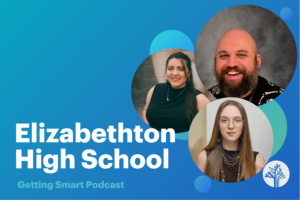
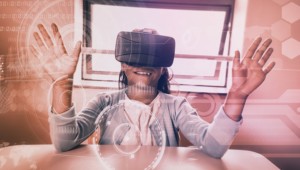


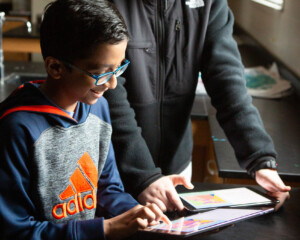
0 Comments
Leave a Comment
Your email address will not be published. All fields are required.